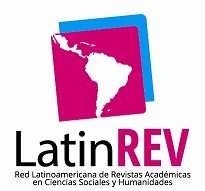The origins of externalism in the History of Science:Boris Hessen and the application of dialectical materialism to Newton in defense of Einstein and Bohr
DOI:
https://doi.org/10.11606/issn.2447-2158.i18p41-61Keywords:
History of Science, externalism, dialectical materialism, Hessen, NewtonAbstract
The article “The Social and Economic Roots of Newton’s Principia”, presented by the Soviet physicist Boris Hessen (1893–1936) at the II International Congress of the History of Science and Technology (1931) in London, inaugurated the approach known as externalism in the History of Science by applying dialectical materialism to analyze Isaac Newton’s (1643–1727) theories. By asserting that the intellectual production of the British physicist had origins in the technical challenges posed by the emerging bourgeois economy, Hessen was advocating for the Theory of Relativity and Quantum Mechanics, both under attack in the Soviet Union, being labeled as idealist and “bourgeois science”.
Downloads
References
BOYER, Carl B. The History of the Calculus and Its Conceptual Development. New York: Dover Publications, 1959.
BUKHARIN, Nikolai (org.). Science at the Cross Roads. Londres: Kniga (England) Ltd, 1931.
FEYERABEND, Paul. Capítulo X. In: FEYERABEND, Paul. Contra o Método. Rio de Janeiro: Francisco Alves, 1977, pp. 189-220.
FREUDENTHAL, Gideon (org.); MCLAUGHLIN, Peter (org.). The Social and Economic Roots of the Scientific Revolution. Dordrecht: Springer, 2009.
FREIRE JR, Olival. “Sobre ‘As Raízes Sociais e Econômicas dos ‘Principia’ de Newton’”. Revista da Sociedade Brasileira de História da Ciência, Rio de Janeiro, n. 9, p. 51–64, 1993.
GAMA, Ruy. À guisa de contribuição. In: GAMA, Ruy. Ciência e técnica. São Paulo: T.A. Queiroz, 1993, pp. 1-7.
GRAHAM, Loren. “The Socio-Political Roots of Boris Hessen: Soviet Marxism and the History of Science”. Social Studies of Science, Thousand Oaks (Califórnia), vol. 15, no. 4, pp. 705-722, 1985. Disponível em: <http://www.jstor.org/stable/285401>. Acesso em 29 nov. 2024.
GRAHAM, Loren. The Soviet Academy of Sciences and the Communist Party, 1927-1932. Princeton: Princeton University Press, 1967.
HESSEN, Boris. As raízes sociais e econômicas dos Principia de Newton. In: GAMA, Ruy (org.), Ciência e técnica. São Paulo: T.A. Queiroz, 1993, pp. 30-89.
HUERGA, Pablo. “Raíces Filosóficas de Boris Mijailovich Hessen: Crítica al Mito del Externalismo de Boris Hessen”. Llull Revista de investigación de Historia de las Ciencias y de las Técnicas, Madri, vol. 24, pp. 347-395, 2001.
IENNA, Gerardo; RISPOLI, Giulia. “Boris Hessen at the Crossroads of Science and Ideology. From International Circulation to the Soviet Context”. Society and Politics, Arad (Romênia), vol. 13, no. 1 (25), pp. 37-63, 2019.
JORAVSKY, David. Soviet Marxism and Natural Science, 1917-1932. 2009. Abingdon (Inglaterra): Routledge, 1961.
JORAVSKY, David. “Soviet Views on the History of Science”. Isis, Oxford, vol. 46, no. 1, pp. 3-13, 1955. Disponível em: <http://www.jstor.org/stable/226819>. Acesso em 29 nov. 2024.
KOKOWSKI, Michał. “Boris Hessen (1893–1936), „Społeczne i ekonomiczne korzenie Principiów Newtona” i paradoksalna historia historiografii nauki”. Studia Historiae Scientiarum, Cracóvia, vol. 21, pp. 555-610, 2022.
KOYRÉ, Alexandre. Do mundo do mais-ou-menos ao universo da precisão. In: KOYRÉ, Alexandre. Estudos de História do Pensamento Filosófico. Tradução de Maria de Lourdes Menezes. 2ª Edição. Rio de Janeiro: Forense Editora Universitária, 2011, pp. 271-288.
MAGALHÃES, Gildo. “Por uma dialética das controvérsias: o fim do modelo positivista na história das ciências”. Estudos Avançados, v. 32, n. 94, pp. 345-361, 2021. Disponível em: <https://biblio.fflch.usp.br/Magalhaes_G_3077223_PorUmaDialeticaDasControversias.pdf>. Acesso em 16 dez. 2024.
MARTINS, Mônica. “O impacto das Exposições Universais do século XIX para as relações econômicas brasileiras e o avanço tecnológico: uma análise sobre a participação das províncias”. In: XII Congresso Brasileiro de História Econômica e 13ª Conferência Internacional de História de empresas, Niterói, Universidade Federal Fluminense, 2017.
MERTON, Robert K. On the Shoulders of Giants: A Shandean Postscript. New York: Free Press, 1965.
PATTINSON, Olga (org.); TALBOT, Chris (org.). Boris Hessen: Physics and Philosophy in the Soviet Union, 1927–1931: Neglected Debates on Emergence and Reduction. Cham (Suíça): Springer, 2021.
ROSA, Carlos Augusto de Proença. História da Ciência: O pensamento científico e a Ciência no século XIX. Vol. 2, Tomo 2, 2ª ed. Brasília: FUNAG, 2012.
SCHWARCZ, L. Exposições Universais: festas do trabalho, festas do progresso. In: As barbas do imperador: D. Pedro II, um monarca nos trópicos. São Paulo: Cia das Letras, pp. 568-597, 1998.
WINKLER, Sean. Boris Hessen and Philosophy. The Socioeconomic Roots of Classical and Modern Physics. Lanham (Maryland): Rowman & Littlefield, 2023.
WESTFALL, Richard S. Never at Rest: A Biography of Isaac Newton. Cambridge: Cambridge University Press, 1980.
ZANETIC, João. “A propósito do artigo de B. Hessen sobre o “Principia” de Newton”. Revista Brasileira de Ensino de Física, vol. 6, no. 1, pp. 33-36, 1984.
Downloads
Published
Issue
Section
License
Copyright (c) 2025 Renato Kenniti Silvestre Agata

This work is licensed under a Creative Commons Attribution-NonCommercial 4.0 International License.
Authors who publish in this journal agree to the following terms:
- Authors retain the copyright and grant the journal the right to first publication, with the work simultaneously licensed under the Creative Commons Attribution License in the "Attribution-NonCommercial 4.0 International" (CC BY-NC 4.0) modality that allows sharing of the work with acknowledgment of authorship and initial publication in this magazine.
- Authors are authorized to assume additional contracts separately, for non-exclusive distribution of the version of the work published in this journal (eg, publishing in institutional repository or as a book chapter), with acknowledgment of authorship and initial publication in this journal.
- Authors are allowed and encouraged to publish and distribute their work online (eg in institutional repositories or on their personal page) at any point before or during the editorial process, as this can generate productive changes, as well as increase impact and citation of the published work (See The Effect of Open Access).
- Any doubts or complaints about copyright must be directed to the Editorial Board or qualify and express themselves in accordance with the guidelines of the Committee on Publications Ethics (COPE).





